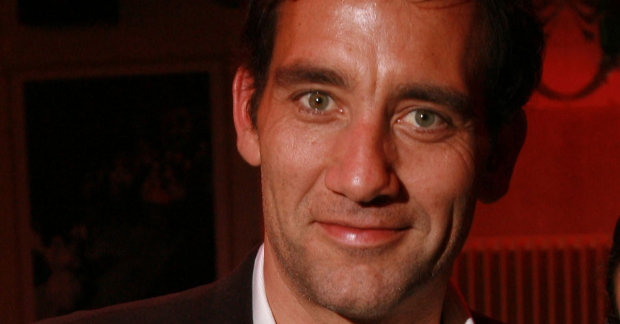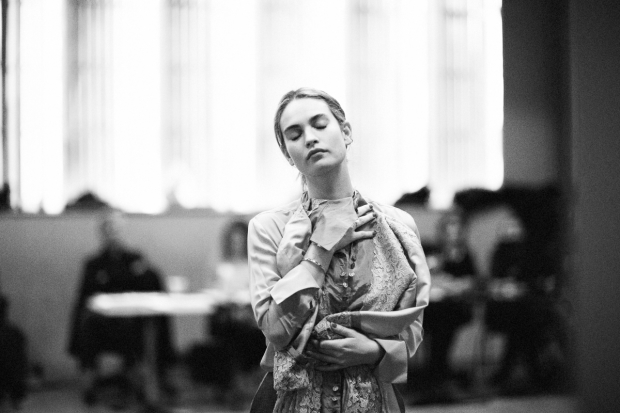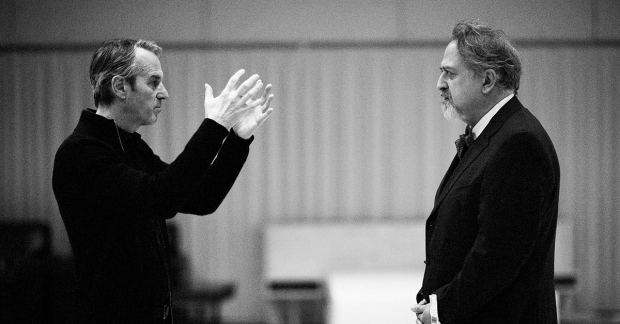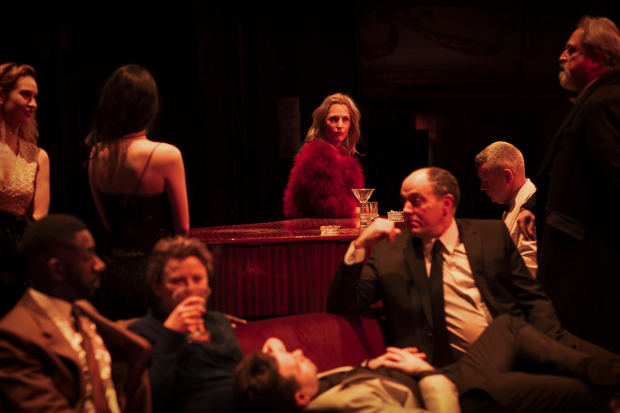Review: All About Eve (Noël Coward Theatre)
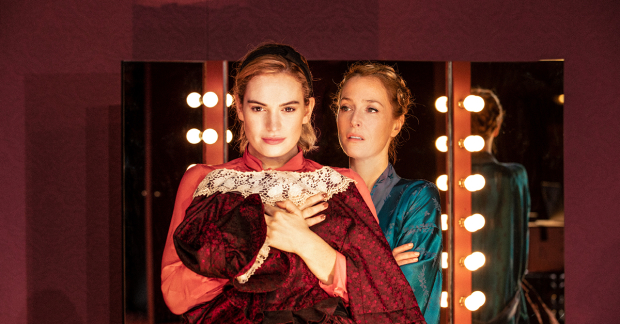
© Jan Versweyveld
You can see why the director Ivo van Hove wanted to adapt Joseph L Mankiewicz's sparkling movie masterpiece for the stage. This story of ambition and obsession, of women haunted by age and by the conflicting demands of art and love, is above all a love letter to theatre, to both its mania and its magic.
The version he has produced is remarkably faithful to the script of the 1950 film, which starred Bette Davis as the famous actress Margo Channing and Anne Baxter as her insinuating young rival Eve Harrington. It's cut only lightly; all the great lines – included the much quoted "Fasten your seatbelts, it's going to be a bumpy night!" – survive intact.
But van Hove has altered the movie's sophisticated, dark tone, reducing its wit and introducing an even stronger element of cynicism. It's as if someone has added an extra dose of angostura bitters to a champagne cocktail; it still fizzes on the way down, but it leaves an unpleasant aftertaste. The result is a production that is easier to admire than to adore, but one which offers a wonderful central role to Gillian Anderson which she seizes with both hands and makes it her own.
It begins, like the movie, with the honey-voiced critic Addison DeWitt ("as essential to the theatre as ants are to a picnic") setting the scene and telling us Eve has won a prize. Then, as the story unfolds backwards, van Hove reveals his brilliance. Superfan Eve, in the glamorous shape of Lily James, is lurking outside the theatre where Margo is performing. As Margo's friend Karen (Monica Dolan) ushers her inside, Jan Versweyveld's terracotta box of a set rises to reveal backstage clutter, a mirror with bright lights and huge portraits of the star set against the brick walls. "You can breathe it, can't you," enthuses Eve. "Like some magic perfume."
And you can. It is a moment of wonder. From that time on, however, van Hove and his designer carefully allow the worlds to mingle; the cast set the stage, the box remains raised for much of the action. The business around the margins is filmed and transmitted via huge screens. Nothing is private, everything is held up to scrutiny and that, I think, is the point. In this contemporary version of the tale, the public and the private have become one, there is no backstage or real life anymore, everything is on show. It's a clever shift of emphasis, which brings Eve's search for fame bang up to date.
In the same way PJ Harvey's haunting, melancholy music underscores most of the action, its constant thrum a reminder of the sadness and fear underlying the most joyous of moments. The terror of death, of the illusion turning into savage reality stalks the play: two of its most effective moments are when first Margo and then Eve stare into the same mirror, clawing at their faces as if to stave off the approach of age.
Van Hove and his associates pull off one devastating trick with that mirror and the screen above it. But many of the interventions, though intellectually satisfying, feel like an essay in film criticism. They have the effect of flattening rather than heightening the action, and they don't quite spring to theatrical life.
What saves the evening is Anderson, finding a way to banish Davis' shadow, with a performance that is full of flickering nuance. She manages to say more with a curled lip and a slight shift of her eyebrows than a film of her vomiting down the loo ever could; her scripted putdowns, often delivered more in sorrow than anger, are punctuated by perfectly pitched pauses. The two most gripping scenes are those with the least interference: her fight with her lover Bill (Julian Ovenden, suitably passionate) after Eve has stepped into her professional shoes and the moment when she sits on the ground and mourns everything she has kicked away to rise the ladder of stardom. In both, Anderson finds an emotion that is devastating, holding the audience in the palm of her hand with her pure skill.
James, on the other hand, struggles to make something of Eve. She is either coltish, all shrugging shoulders and cringing gratitude, or malign. The production has a habit of leaving her beached; one climactic scene when she blackmails Karen to get a part, is played with her back to the camera; her great speech about the power of applause is delivered from the back of the stage. Dolan is a bracing presence as Karen, Sheila Reid has great fun as the all-seeing servant Birdie and Stanley Townsend is truly frightening as the manipulative DeWitt, all smiles on the surface and violence beneath.
It is a good evening in the theatre, but some essential spark is missing. I will always remember Anderson as Margo, but I can't help longing for van Hove to give up on remaking movies and return to rethinking plays.



